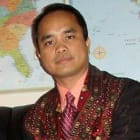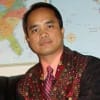commentary Commentary
Commentary: Why a military coup cannot be the solution in Myanmar
The State of Emergency and the detention of State Counsellor Aung San Suu Kyi will have larger implications for the military and Myanmar, says Dr Nehginpao Kipgen.
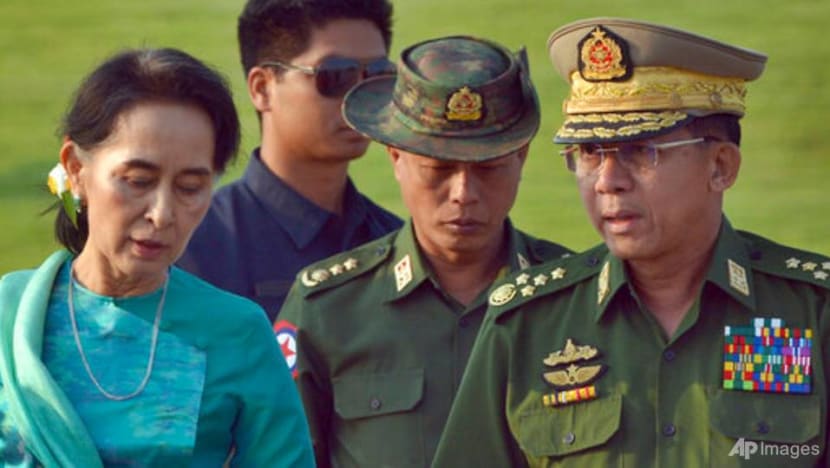
In this May 6, 2016, file photo, Aung San Suu Kyi, left, Myanmar's foreign minister, walks with senior General Min Aung Hlaing, right, Myanmar military's commander-in-chief, in Naypyitaw, Myanmar. (Photo: AP/Aung Shine Oo)
NEW DELHI: The shocking detention of Myanmar State Counsellor Aung San Suu Kyi and a State of Emergency declaration on Monday (Feb 1) have sent ripples through the international community but comes as little surprise to keen observers.
Since Myanmar’s most recent general election held last November delivered a strong mandate to the National League for Democracy (NLD), tensions between the military and the NLD have intensified.
The Union Solidarity and Development Party (USDP), the main opposition party with close links to the military, which saw a slide in votes, did not accept the results.
Worse, they accused the Union Election Commission (UEC) and the NLD of engaging in electoral fraud, including duplication of names using the same identity cards, voting without identity cards, voters with false identity cards, and the issue of underage and overage voters.
Making the situation more alarming was a move by the military, which ruled the country with an iron-fist for almost five decades, intervening in support of the USDP.
During a press briefing on Friday (Jan 26), the military spokesperson Major General Zaw Min Tun made a veiled threat, warning the military would “take action” if irregularities were not fixed. “We do not say the Tatmadaw will take power; neither do we say it will not,” he had said.
READ: Commentary: So much hope as Myanmar head to polls
The military is understandably coming under intense international pressure after an international inquiry into the Rohingya crisis released their findings last week.
Aung San Suu Kyi’s Financial Times commentary touching on this issue, published on Jan 23, suggested action will be taken against members of the “Defence Services” found guilty, who will be prosecuted through the military justice system.
READ: Commentary: Proving Myanmar had genocidal intent is not straightforward
CHALLENGING THE ELECTION RESULTS
But the military must reverse its actions.
It’s hard to see the last 24 hours as anything else than the losers of an election attempting repeatedly to overturn the results and override the will of voters as their other options fade. The prior theatrics do little to mask this narrative.
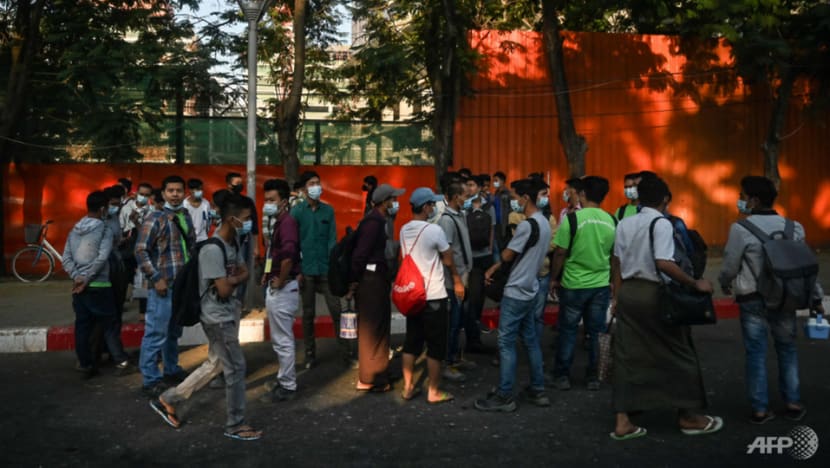
The USDP said it had called for military intervention on the basis that the UEC did not pay serious attention to their complaints after filing more than 1,200 objections and complaints with the police and the election commission.
While the military responded with a reasonable move to look into alleged cases, its sudden expansion of investigations and subsequent claim of finding 8.6 million irregularities just last week took everyone by shock.
To the UEC’s credit, its swift response, issued on Saturday, has been consistent since such claims arose: It has found no major irregularities potentially impacting the election results.
The UEC also took pains to emphasise how both local and international independent observers found the conduct of the election to be, by and large free and fair.
READ: Commentary: Why Myanmar voted overwhelmingly for Aung San Suu Kyi again
The State of Emergency declaration comes also on the back of past attempts by the USDP to challenge the election seeing little success.
The USDP and the military have also called for Parliament, which was supposed to sit on Monday, to hold a special session to discuss what they call “mass fraud.” But Parliament rejected this on the grounds the UEC’s decisions are final on election-related issues.
The Myanmar Supreme Court is mulling the USDP’s request for a writ to summon the UEC over allegations of electoral misconduct but legal observers suggest they are unlikely to accede without new, substantive evidence.
UNDERMINING THE LEGITIMACY OF MYANMAR’S INSTITUTIONS
The military’s counter-productive actions undermine institutions it had carefully tended to and put in place and risks repudiating the processes undergirding election and the political transfer of power.
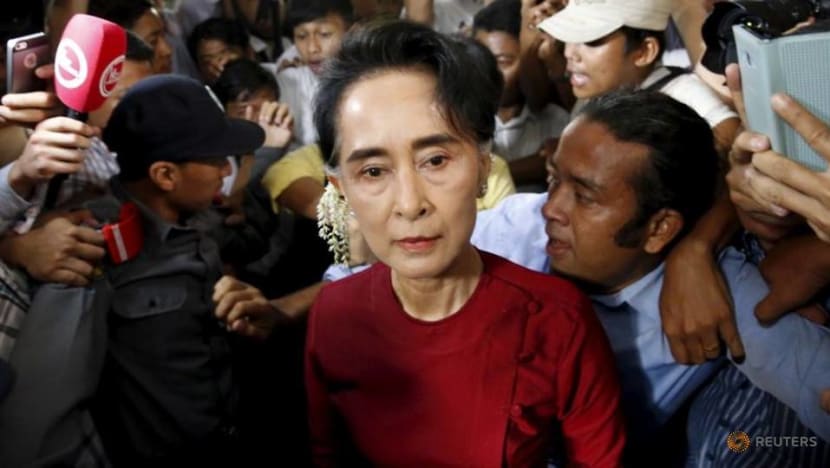
The military does seem to have legitimate grounds to declaring such a State of Emergency under Article 40(c) of the constitution if the President was consulted.
But by threatening to revoke the constitution on Monday, the military revealed it is willing to overturn the political system when its interests are threatened.
The constitution is the brainchild of the military, worked on since the 1990 general election, and was even put up for a referendum in 2008 against factions urging otherwise.
It is this same constitution that gives the Myanmar President the power to appoint members of the UEC. Since the president is appointed by members of the national parliament, the office normally represents the interests of the ruling party, which enjoys a majority in the parliament.
READ: Commentary: What does it matter if Canada strips Aung San Suu Kyi of her honorary citizenship?
This same system was employed during the 2010 election, which the USDP won overwhelmingly. Then president Thein Sein, who was a former military general, had the power to appoint people of his or his party’s choosing.
But over the past five years, the NLD government controlled both houses of the parliament, and nominated party members to the presidency. With a landslide victory, the constitution gives the NLD greater sway on such matters and rightly so.
SOME ROOM FOR IMPROVEMENT
To be fair, the UEC could have more thoroughly addressed allegations of fraud with detailed clarifications of incidents of fraud found and how they came to the conclusion that the election results were not vastly impacted, apart from pointing to the large gaps between the NLD and other parties in the popular vote.
But the UEC was too caught up in the proxy war between the military and the NLD. They did not grasp how carefully they needed to handle grievances from losing parties with strong stakeholders, to avoid such concerns from spiraling out of control and creating spoilers.
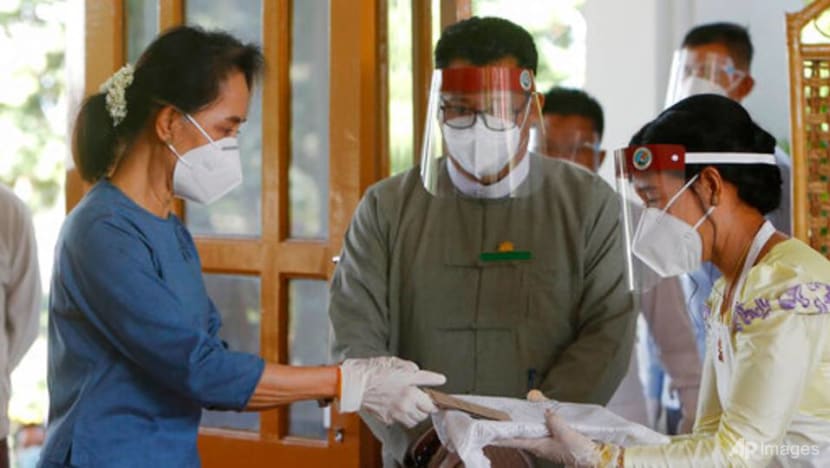
All is not lost. There are face-saving ways for Myanmar to escape this crisis. Elected members of Parliament could consider taking up the military’s suggestion to establish a commission to investigate fraud claims, to unequivocally dispel doubts and act as a backstop for future complaints and allegations.
It is difficult to see how such actions would be perceived as anything short of rewarding bad behaviour by the international community. Condemnations have come quick. International sanctions could follow.
For a country long used to a political system where the military holds huge sway, some say this national spirit of pragmatism and political incrementalism may be needed to steer Myanmar away from backsliding into yesteryears.
Perhaps, these developments demonstrate how powerful the military is and the outsized role they will still play in the country’s politics. They should wield that power with accountability instead of squandering away what goodwill has been built up since the democratic transition.
Few might accept this coup. Most surveyed Myanmar voters have indicated in past polls that they believe the NLD is the only party which can stand up against both internal threats from the military and external criticisms.
The military should not underestimate the forces that could be unleashed by this move.
Dr Nehginpao Kipgen is a Political Scientist, Associate Professor and Executive Director at the Center for Southeast Asian Studies, Jindal School of International Affairs, O P Jindal Global University. He is the author of three books on Myanmar, including Democratization of Myanmar.








